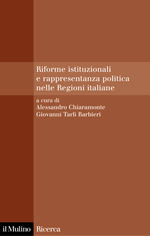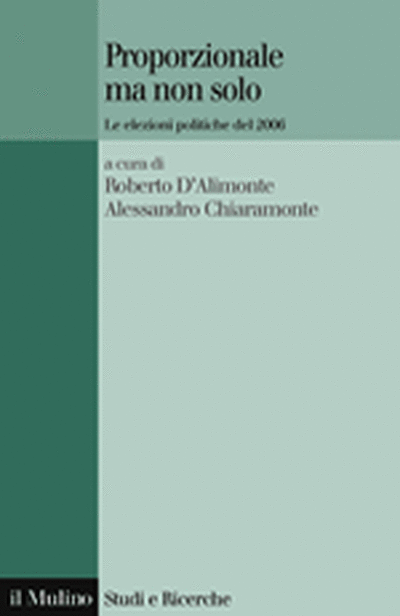Ricerca
-
La riforma elettorale: oltre il premio di maggioranza?
Chiaramonte, A., D’Alimonte, R., & De Sio, L. (2008). La riforma…
-
La riforma del voto europeo è un’occasione per consolidare il “bipolarismo moderato”
D’ALIMONTE, R. D. R. (2008). La riforma del voto europeo è…
-
Il verdetto elettorale
D’ALIMONTE, R. D. R. (2008). Il verdetto elettorale. In Itanes (Ed.),…
-

Riforme istituzionali e rappresentanza politica nelle Regioni italiane
Chiaramonte A., Tarli Barbieri G. (a cura di), Riforme istituzionali e…
-

Proporzionale ma non solo. Le elezioni politiche del 2006
D’Alimonte R., Chiaramonte A. (a cura di), Proporzionale ma non solo.…
-
Il rapporto tra gli italiani e i partiti: declino o transizione?
De Sio, L. (2007). Il rapporto tra gli italiani e i…
-
Proporzionale ma non solo. Le elezioni politiche del 2006
-. (2007). Proporzionale ma non solo. Le elezioni politiche del 2006.
-
Movimento elettorale e voto diviso nelle elezioni politiche del 2006 in Toscana
De Sio, L. (2007). Movimento elettorale e voto diviso nelle elezioni…
-
Il nuovo sistema elettorale:dal collegio uninominale al premio di maggioranza
D’ALIMONTE, R. D. R. (2007). Il nuovo sistema elettorale:dal collegio uninominale…
-
Come e perché il centrosinistra ha vinto le elezioni 2005
D’Alimonte, R., & De Sio, L. (2007). Come e perché il…